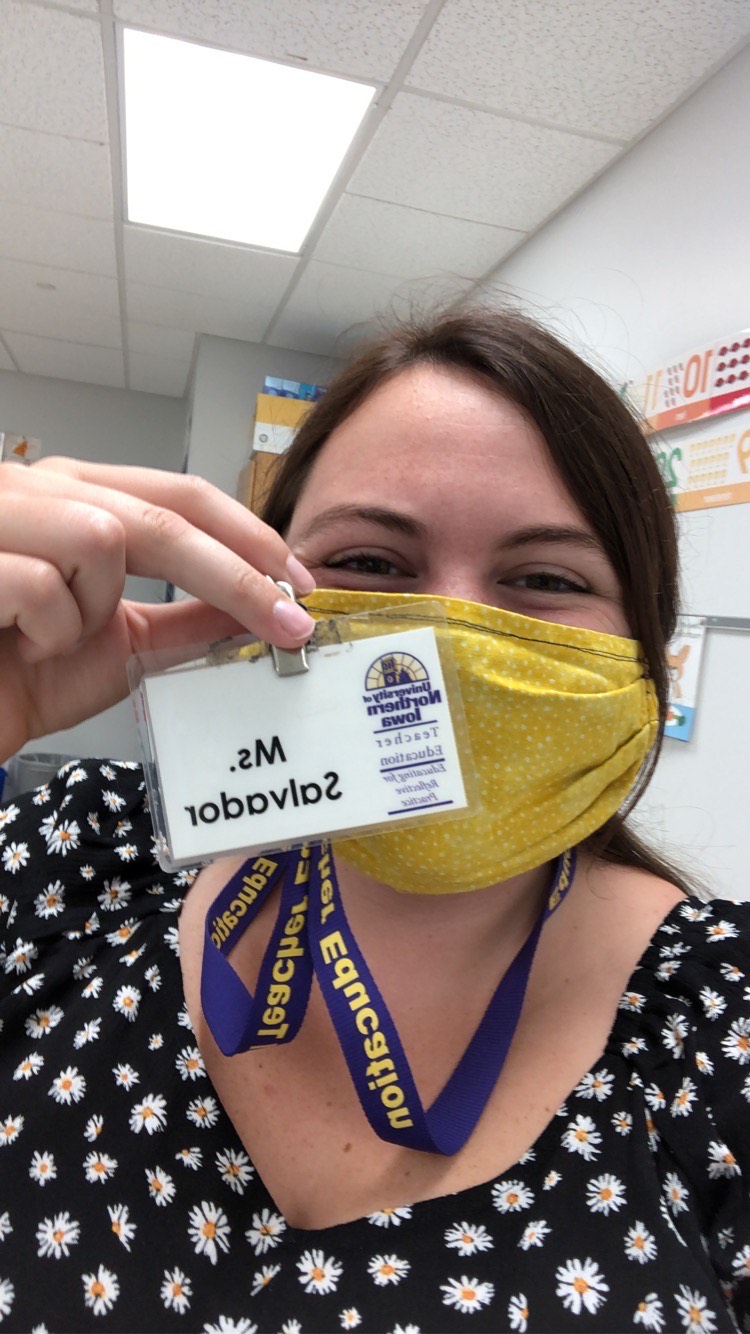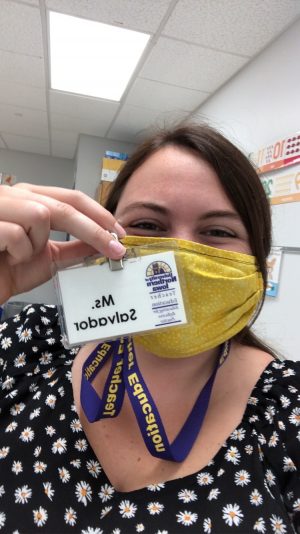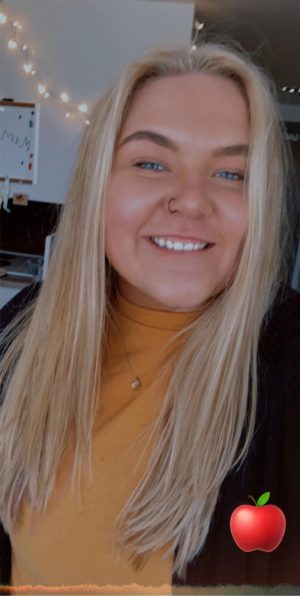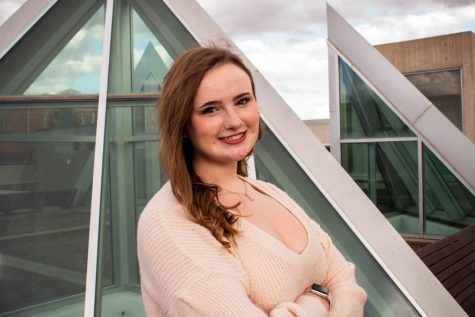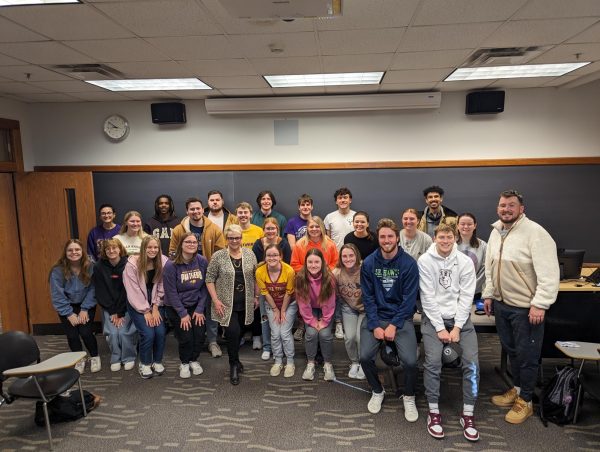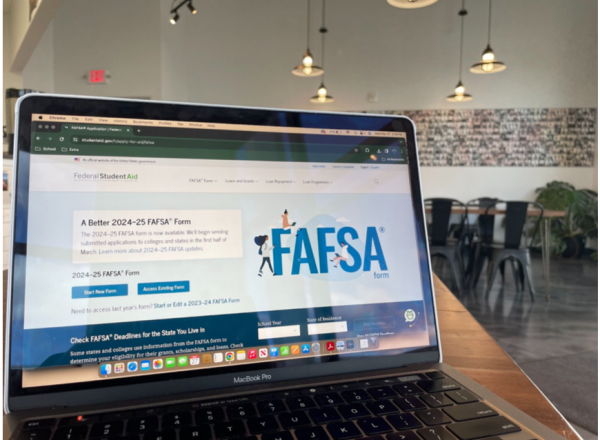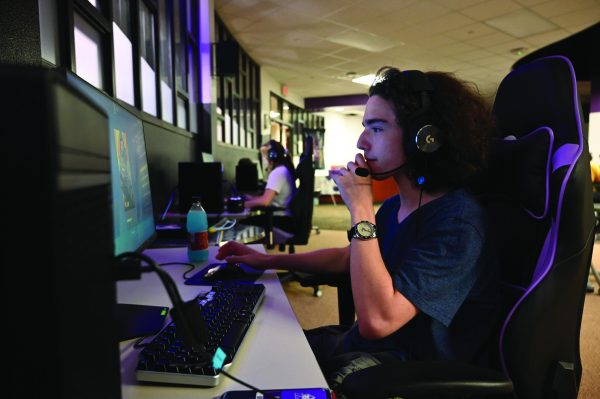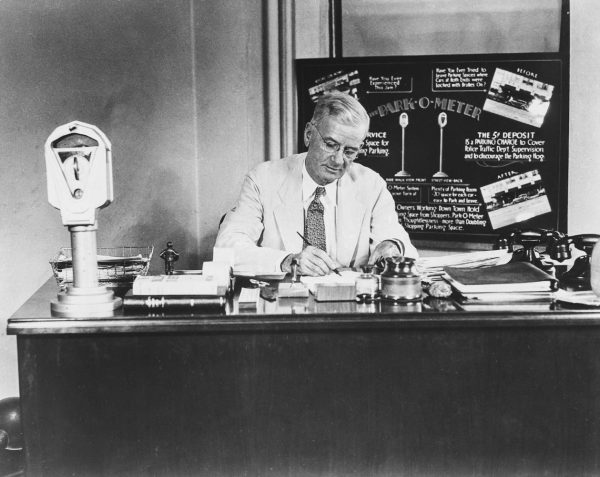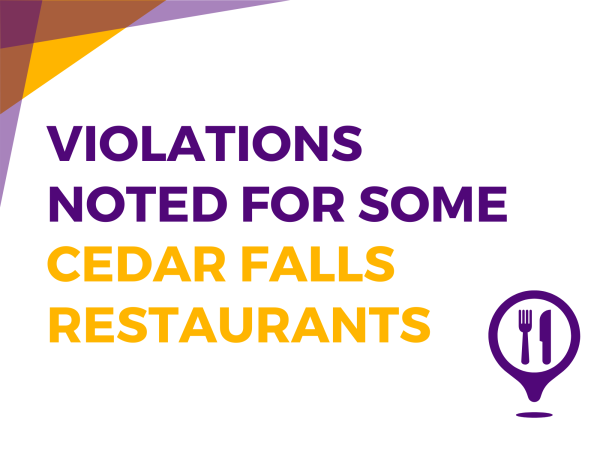Student teachers adapt to COVID-19
Sep 10, 2020
Schools across the country are beginning to return to classes after the COVID-19 pandemic forced them to close down in early spring of this year. As teachers and students reunite, one familiar face may be noticeably absent.
Many school districts this year chose to “opt-out” of student teaching programs
in an attempt to cut down the number of people in their buildings. Those who are allowed in the building still face a number of obstacles, including virtual supervised lessons and attempting to squeeze as much learning as possible into shortened semesters. Not to mention, they’re trying to connect with students in new ways as masks block typical social cues they’ve been trained to recognize.
UNI elementary education major Camryn Salvador, currently student teaching in Burlington, Iowa, recalled her struggles to adapt.
“At the Pre-K age, they aren’t the best at using their words, so you can read their faces really well to know if they’re uncomfortable, if they’re upset, if they’re listening or having a good time, and with (masks), you kind of lose that,” she said.
A UNI student teacher in Waterloo who wished to remain anonymous due to
contracts also expressed her concerns for students.
“I’d be lying if I said it wasn’t all really overwhelming, especially with all the COVID-19 precautions and protocols,” she said.
She also described moments of feeling unprepared for the changes facing her.
“The past few years my expectations were one thing, and now over the last six months it had to change into something else,” she said. “We were always taught to create a classroom community with groups or partners, but that’s not really possible.”
She said part of her job also involves working with students as they follow their own new rules.
“At the end of class, they’ll say, ‘School is so different, I don’t like it,’ or they’ll go to their friend’s desk and try to talk to them and we’ll have to be like, ‘Hey, sorry, but you have to stay in your little bubble,’” she said. “It sucks to have to (be) almost policing them to follow rules… I feel really bad.”
Elementary education major Olivia Frick, who is also student teaching in Waterloo, discussed the new changes in her school as well.
“Everything’s a little different with COVID… but we wear masks, we wash our hands and sanitize so much… I think they’re just excited to be back and seeing people,” she said.
Still, all the student teachers interviewed expressed optimism for the future as
educators.
“I think as long as we keep kids as our first priority, I think we will be fine,” Frick said.
Salvador also expressed the same sentiment.
“Even though things are a little bit scary right now, it’s super easy to look to the future where things are going to be better,” she said. “(The students) just want to grow and they want to be loved, and the teaching can come last.”


